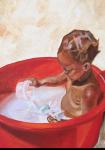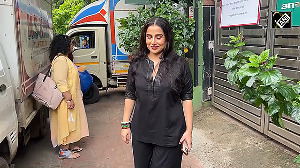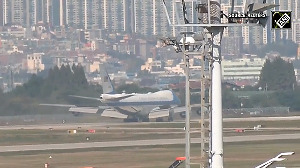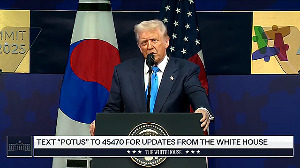Top Iraqi physicist Dr Jaffar Dhia Jaffar, who surrendered to US forces last week, is being interrogated, according to sources in Baghdad.
Jaffar, who studied at the Imperial College in London, is credited with masterminding Iraqi efforts to acquire nuclear weapons.
He supervised a project to improvise on an old-fashioned technology for electromagnetic isotope separation.
The technology, pioneered by US physicist Ernest Lawrence at nuclear laboratories in Los Alamos, New Mexico, involved the use of giant magnets called calutrons to separate uranium isotopes.
Jaffar improved the original version of calutron and named it Baghdadtron.
According to some estimates, Iraq was only five months away from testing a nuclear device when Saddam Hussein earned the wrath of the international community following his August 1990 invasion of Kuwait.
The subsequent UN-backed sanctions starved Baghdad of funds and undermined Iraq's plans to become the first Arab nuclear state.
UN inspectors still tell the story of how they first met Jaffar.
An inspector, who is now retired, was summoned to meet the Iraqi scientist a few months after the war. After exchanging pleasantries, the inspector recalls, Jaffar shocked his guest by telling him, "We haven't got it. Of course, if we want to build a nuclear bomb, we are smart enough to do it."
He then pulled out a sheet of paper and listed the steps involved in making a nuclear device.
Jaffar disappeared after the war and was believed to be working on other secret projects.
He was occasionally seen at the famous Alwiyah Club in Baghdad in the company of the new wife he had acquired with the approval of Saddam.
His surrender is expected to unravel some of the biggest mysteries of the Gulf War. They include the whereabouts of the missing five blueprints for a nuclear warhead, as well as the explosive lenses and other vital components of a nuclear bomb.
Until recently there was speculation that these items had been hidden in the back of a convoy constantly kept on the move on the back roads of Iraqi cities.
Jaffar is also expected to identify the Asian scientist who allegedly offered to help Saddam acquire nuclear weapons capability in exchange for cash. There has been plenty of speculation, but nothing has ever been proved.
One of Jaffar's former best friends, Iraqi nuclear chemist Dr Hussein Shahristani, has revealed that before the war started he offered to help him find a safe haven. But the offer was turned down.
rediff.com Senior Editor Shyam Bhatia is the co-author of Saddam's Bomb, on Iraq's search for nuclear weapons





